The Complete Checklist for Promotion of Events

Effective event promotion is crucial for ensuring the success of any event, whether it's a small local gathering, a large corporate conference, or a virtual seminar. Strategic event promotion helps increase brand awareness, attract the right attendees, and create a memorable experience.
Quick Summary
Effective event promotion is vital for success, enhancing brand awareness and ensuring a memorable experience. By clearly defining goals, understanding the target audience, and creating a structured promotion timeline, organizers can effectively boost ticket sales and engagement. Utilizing diverse channels such as social media, email marketing, and local media fosters broader reach. Strategies like clear calls to action, personalized content, and urgency tactics tap into audiences, ultimately en
Effective event promotion is the cornerstone of successful event marketing. It boosts attendance, generates interest, and ensures that potential attendees are well-informed and motivated to participate. Utilizing various promotional strategies and marketing channels, from social media to email marketing, helps reach a broader audience and engage them effectively. This ultimately leads to increased ticket sales, greater audience engagement, and a successful event that meets or exceeds its goals.
Pre-Event Planning

Define Your Goals and Objectives
The foundation of any successful event promotion lies in defining clear goals and objectives. Clarifying the purpose of the event is essential for guiding all subsequent promotion efforts. Whether you aim to increase awareness, generate leads, or build community engagement, understanding your primary objectives will shape your promotional strategies and help measure success.
Ready to Grow Your Business?
Get a custom strategy tailored to your goals.
Setting measurable goals for attendance, engagement, and outcomes is crucial. For example, you might aim to attract a specific number of event registrants, boost social media engagement, or achieve a certain amount of ticket sales. Having quantifiable targets will help you assess the effectiveness of your marketing and adjust strategies as needed.
Identify Your Target Audience
Understanding your audience is important for tailoring your promotion strategies to attract the right people. Start with the demographics and interests of your potential attendees, and look at factors such as age, Location, occupation, and hobbies. This detailed understanding will help in creating personalized promotional content that resonates with your audience.
Segmenting your audience allows for more personalized promotion strategies. For instance, you can create different messages for past attendees and new audiences. Tailoring your messaging to specific segments can increase engagement and improve the likelihood of attracting a diverse group of attendees.
Create a Promotion Timeline
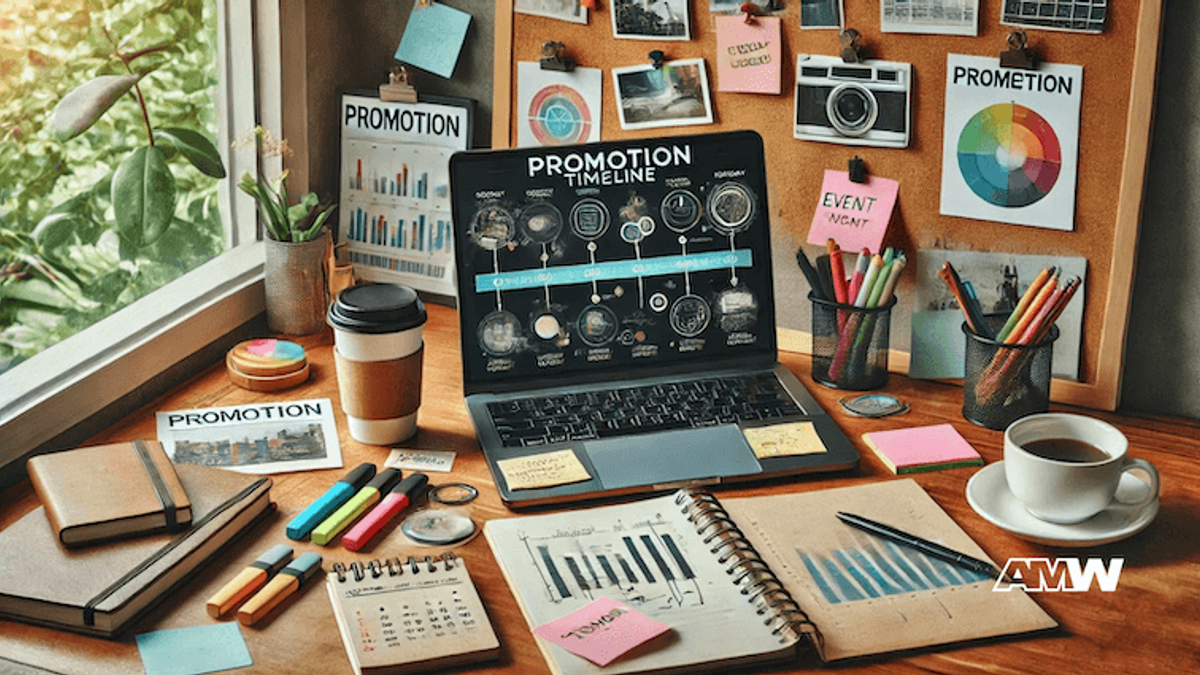
Developing a comprehensive promotion timeline is essential for ensuring that all promotional activities are executed in a timely and organized manner. Start by listing all the promotional activities you plan to undertake, including social media posts, email marketing campaigns, press releases, and influencer marketing.
Allocate specific times for pre-promotion, active promotion, and last-minute pushes. Pre-promotion might involve generating buzz about the event theme and announcing keynote speakers. Active promotion could include running social media ads, hosting a social media contest, and engaging with audience members on social channels. Last-minute efforts might focus on offering discounted tickets or highlighting early bird registration deadlines to boost attendance.
Clarify the Purpose of the Event
Understanding and clearly defining the purpose of your event is the foundation of successful event promotion. Whether you are organizing corporate events, community gatherings, or virtual events, knowing why you are hosting the event will guide all your promotional efforts. A clear purpose helps in crafting compelling event messaging that resonates with your target audiences.
Set Measurable Goals for Attendance, Engagement, and Outcomes
Once the purpose is clear, setting measurable goals is the next crucial step. Goals such as increasing ticket sales, boosting attendance numbers, enhancing audience engagement, or achieving a certain level of social media interaction should be specific and quantifiable.
Potential Attendees
Knowing your audience is essential to creating promotional strategies. Conduct research to gather insights into the demographics, interests, and preferences of your potential attendees. Use this information to tailor your event content, choose the correct marketing channels, and create messages that will attract people to your event.
Segment Your Audience for More Personalized Promotion Strategies
Segmenting your audience into different groups allows for more targeted promotion efforts. For example, you might have separate strategies for engaging past attendees, attracting new audiences, or reaching out to specific demographics. Personalized event promotion not only increases relevance but also maximizes engagement and attendance.
Develop a Timeline That Includes All Promotional Activities Leading Up to the Event
Creating a detailed timeline for all your promotional activities ensures that nothing is overlooked and helps maintain a consistent promotion schedule. This timeline should include key milestones and deadlines for activities such as launching the event website, creating the event page, posting on social media platforms, sending email marketing campaigns, and engaging with influencers.
Allocate Time for Pre-Promotion, Active Promotion, and Last-Minute Pushes
Effective event promotion involves different phases. Pre-promotion focuses on generating initial interest and creating awareness about the upcoming event. This might include teasers, announcements, and early bird registration offers. Active promotion is the main phase where the majority of your marketing efforts take place, such as social media ads, influencer collaborations, and email marketing. Last-minute pushes are designed to boost attendance and engagement as the event date approaches, often using tactics like free tickets or last-minute discounts.
By following these steps in the pre-event planning phase, event organizers can lay a strong foundation for a successful promotion of events. With clear goals, a deep understanding of the target audience, and a well-structured timeline, you are well on your way to ensuring your event reaches its full potential.
Crafting Your Message

Develop Key Messaging
Crafting a compelling message is essential for effective event promotion. Your message should clearly highlight the unique value proposition of your event, making it stand out from the multitude of other events vying for attention.
The Unique Value Proposition of Your Event
To successfully promote your event, emphasize what makes it unique. Whether it's a high-profile keynote speaker, a cutting-edge event theme, or exclusive networking opportunities, these elements should be at the forefront of your messaging. Clearly articulate the benefits and experiences that attendees will gain, which they won't find elsewhere. This will attract your audience and generate interest and anticipation among potential attendees.
Craft Compelling Calls to Action
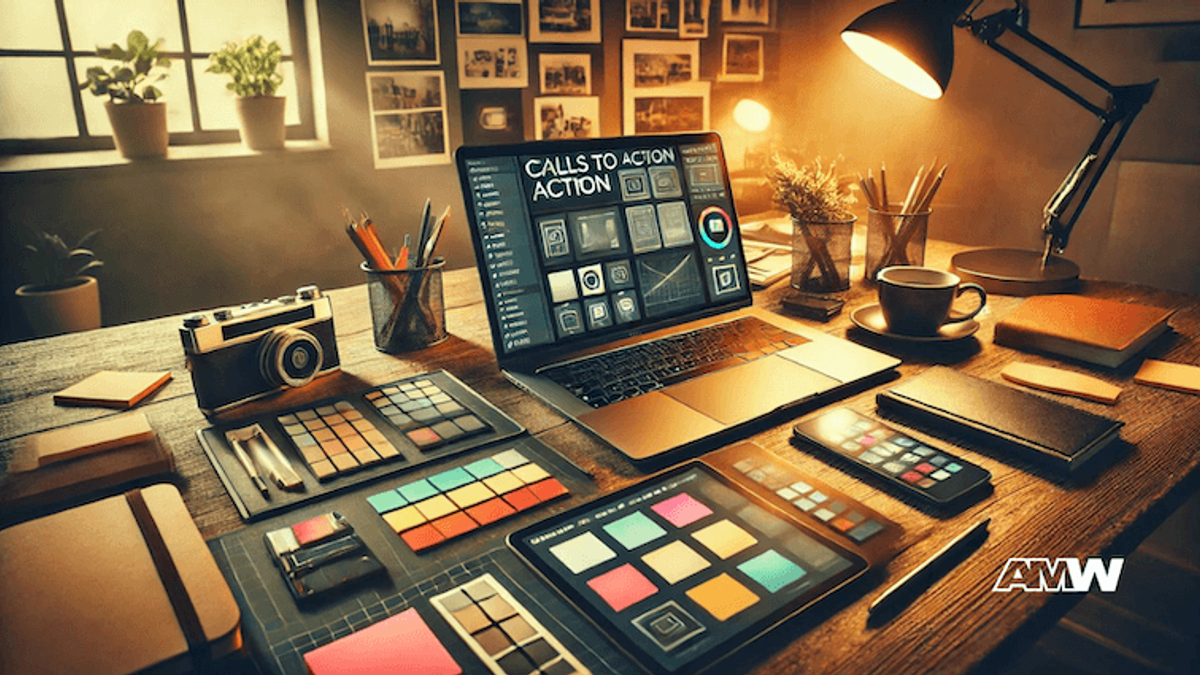
Your calls to action (CTAs) should be clear, compelling, and urgent. Effective CTAs prompt immediate responses and can significantly boost event registrations. Use action-oriented phrases like "Register Now," "Secure Your Spot," or "Join Us for an Unforgettable Experience." Place CTAs strategically throughout your promotional materials, including your event site, social media posts, and email newsletters, to maximize their impact.
Design Promotional Materials
Creating visually appealing and professional promotional materials is key to capturing attention and conveying the significance of your event.
Create Eye-Catching Graphics, Flyers, and Banners
Invest in high-quality design for your promotional materials. Eye-catching graphics, well-designed flyers, and attractive banners can make a substantial difference in your promotional efforts. Use these materials across various platforms, such as your event site, social media accounts, and email marketing campaigns, to maintain a consistent and professional appearance.
Ensure Consistency in Branding Across All Materials
Consistency is important for establishing a strong and recognizable event brand. Ensure that all promotional materials, from social media posts to email newsletters, adhere to your event branding guidelines. For a consistent brand identity, use the same color schemes, fonts, and logos. This helps build trust among potential attendees.
Utilizing Online Channels

Social Media
Social media platforms are strong tools for promoting events, offering numerous opportunities to reach a wide audience and engage with potential attendees.
Strategies for Using Facebook, Instagram, X, and LinkedIn
Each platform has its strengths that can be leveraged for event promotion.
- Facebook: Create a dedicated Facebook event page where you can post updates, share event details, and engage with attendees. Use Facebook ads to target specific demographics.
- Instagram: Share visually appealing event photos and stories. Utilize Instagram's features, such as IGTV, for behind-the-scenes content and Reels to generate excitement.
- X: Provide real-time updates and engage with your audience through tweets. Use event hashtags to increase visibility.
- LinkedIn: Ideal for corporate events, LinkedIn allows you to target professionals. Share event highlights, speaker profiles, and industry-related content to attract your target audience.
Tips for Creating Engaging Content and Using Hashtags Effectively
Creating content is essential for capturing the interest of your audience. Share a mix of promotional posts, interactive content, and updates to keep your audience engaged. Use event-specific hashtags to increase the reach of your posts. Encourage attendees and event ambassadors to use these hashtags in their posts to generate buzz and create a sense of community around your event.
Email Marketing Campaigns

Email marketing is one of the most effective channels for promoting events, allowing direct communication with your audience.
Building a Targeted Email List
Build a targeted email list by collecting email addresses through event registrations, your event website, and social media. Segment your email list based on past attendees, potential attendees, and specific interests to tailor your messaging effectively.
Crafting Compelling Email Newsletters and Reminders
Your email newsletters should be engaging and informative. Highlight key event features, such as keynote speakers and exclusive sessions, and include compelling CTAs. Sending regular reminders as the event date approaches can help boost attendance. Use personalized subject lines to increase open rates and engagement.
Event Listing Websites
Listing your event on popular event websites and community calendars can significantly increase its visibility and attract a diverse audience.
Optimize Event Descriptions for Searchability
Optimize your event descriptions for search engines by including relevant keywords that potential attendees might use to search for events similar to yours. This can help increase the visibility of your event on these platforms and attract more attendees. Ensure your descriptions are clear, concise, and highlight the key aspects of your event.
By focusing on crafting compelling messages, designing eye-catching promotional materials, and utilizing various online channels effectively, you can enhance your strategies and ensure your event reaches its full potential. All of these steps are important for attracting and engaging your target audience, which ultimately leads to a successful and well-attended event.
Traditional Promotion Methods
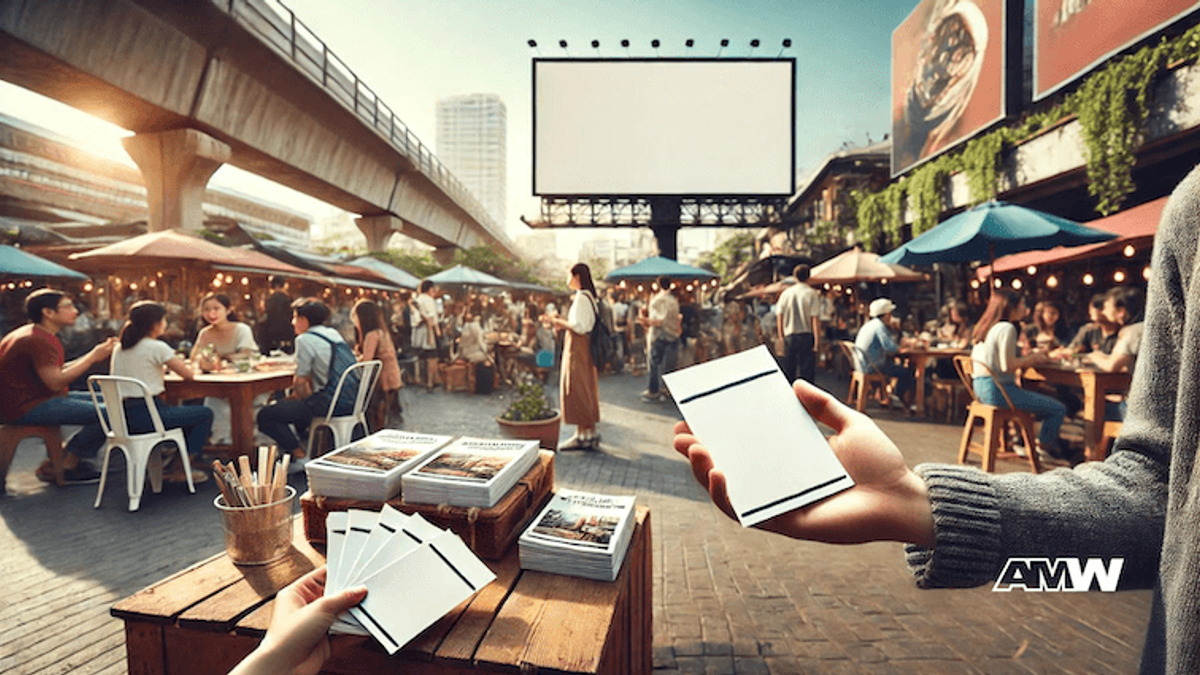
Local Media Outreach
Local media can be a strong tool for event promotion, providing access to a broad audience that might not be reached through digital channels alone.
How to Write and Distribute Press Releases
To get media attention, it's important to write a press release that grabs the reader's interest. You should start with a short, attention-grabbing headline that tells the main news. Follow with a strong lead paragraph that answers the who, what, when, where, and why of your event. Include quotes from event organizers or keynote speakers to add credibility and interest.
Once the press release is ready, distribute it to newspapers, radio, and TV. Use media contact lists to ensure they reach the right people. Personalize your outreach to make your press release stand out among the numerous pitches journalists receive daily.
Ready to Grow Your Business?
Get a custom strategy tailored to your goals.
Engaging with Local Newspapers, Radio Stations, and TV Channels
Building relationships with local media is crucial for ongoing event promotion. Contact local newspapers, radio, and TV channels with story ideas related to your event. Offer exclusive interviews with keynote speakers or behind-the-scenes access to generate interest. These media outlets often look for local stories, making them a valuable resource for promoting your event.
Print Advertising

Print advertising remains a relevant method for event marketing, especially for reaching local audiences.
Designing and Distributing Posters, Flyers, and Brochures
High-quality posters, flyers, and brochures can effectively attract attention and inform potential attendees about your event. Use bold visuals, concise text, and clear CTAs to ensure your message is understood quickly. Distribute these in high-traffic areas such as community centers, libraries, coffee shops, and other local businesses.
Placing Ads in Local Magazines and Newspapers
Local magazines and newspapers are excellent platforms for reaching your target audience. Design ads that are visually appealing and include essential details like the event date, Location, and how to register. Running a series of ads leading up to the event can increase visibility and generate interest.
Partnerships and Sponsorships
Collaborating with local businesses and influencers can extend the reach of your event promotion efforts.
Collaborating with Local Businesses and Influencers
Partnering with local businesses can help promote your event through their customer base. For example, a local café might display your event flyer or offer a special discount to their patrons who register for your event. Engaging with influencers can also amplify your message. Influencer marketing is effective on social platforms, where influencers can share event details with their followers and generate buzz.
Leveraging Sponsorships for Wider Reach
Sponsorships can provide financial support and additional promotional channels. Sponsors can help promote your event through their marketing channels, increasing your event's reach. In return, offer them visibility through logo placement, mentions in email marketing, and speaking opportunities during the event. This mutually beneficial arrangement can enhance both your event brand and that of your sponsors.
Engaging Your Audience
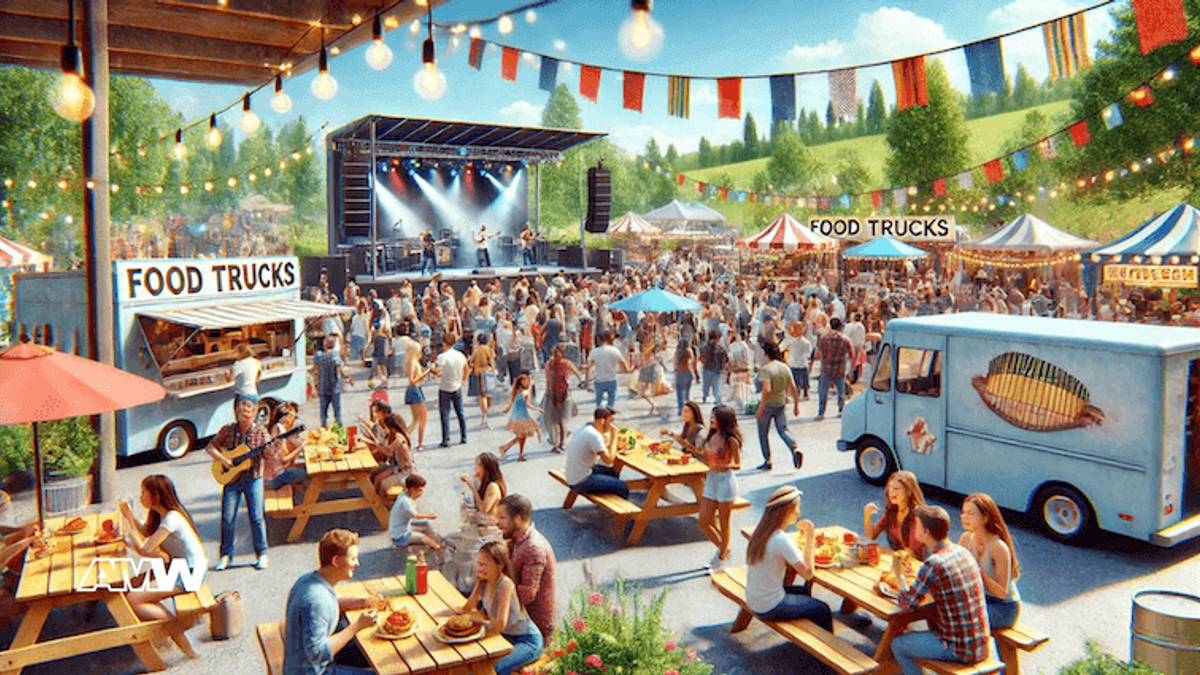
Interactive Content
Engaging your audience with interactive content is crucial for building excitement and maintaining interest leading up to the event.
Creating Teaser Videos, Behind-the-Scenes Content, and Live Q&A Sessions
Teaser videos are a great way to generate anticipation. Share short clips highlighting key aspects of the event, such as the venue, preparations, and snippets from past events. Behind-the-scenes content provides a glimpse into the event planning process, making potential attendees feel involved and excited.
Live Q&A sessions on social media can engage your audience directly. Allowing potential attendees to ask questions and receive real-time answers can build excitement and trust. Use these sessions to introduce keynote speakers or discuss event themes in detail.
Hosting Contests and Giveaways to Generate Excitement
Social media contests and giveaways are effective strategies for increasing audience engagement. Encourage participants to share your event hashtag, like your social media accounts, or tag friends to enter the contest. Offering prizes such as free tickets or exclusive event merchandise can generate buzz and attract new audiences.
Community Engagement
Participating in local events and activities helps to promote your event and build relationships within the community.
Participating in Local Events and Activities to Promote Your Event
Attend local events to raise awareness about your upcoming event. Set up a booth, distribute promotional materials, and interact with attendees to spread the word. This face-to-face engagement can be particularly effective in building a strong local presence and attracting people to your event.
Building Relationships with Community Leaders and Organizations
Forming partnerships with community leaders and organizations can enhance your promotional efforts. These leaders often have significant influence and can help promote your event within their networks. Collaborate on community initiatives and activities to build trust and increase your event's visibility.
By utilizing traditional promotion methods, engaging your audience with interactive content, and building strong community relationships, you can develop a plan that maximizes your event's reach and impact. These efforts, combined with the effective use of online channels, will ensure your event attracts a large and engaged audience, ultimately leading to a successful and memorable experience for all involved.
Last-Minute Promotion

As the Date of your event approaches, employing last-minute promotion strategies can help boost attendance and generate excitement. Here are some effective tactics to consider:
Urgency and Scarcity Tactics
Creating a sense of urgency can motivate attendees to act quickly.
Highlighting Limited Availability and Early Bird Pricing
Emphasize the limited availability of tickets and highlight any early bird registration discounts. Use phrases like "Only a few spots left!" or "Early bird discount ends soon!" to convey urgency. These tactics can encourage potential attendees to secure their tickets before it's too late.
Using Countdowns and Reminders to Create Urgency
Countdowns are a powerful way to build anticipation and urgency. Display countdown timers on your event website and event page, and incorporate them into your social media posts and email marketing. Regular reminders through social media accounts and email newsletters can keep the event top-of-mind and encourage last-minute registrations.
Engaging Influencers and Ambassadors

Influencers and ambassadors can significantly amplify your last-minute promotion efforts by leveraging their networks and credibility.
Activating Event Ambassadors to Spread the Word
Event ambassadors who are enthusiastic supporters of your event can help spread the word within their networks. Encourage them to share their excitement, participate in social media contests, and use the event hashtag. Providing ambassadors with exclusive content and promotional materials can help them effectively promote your event.
Leveraging Influencer Partnerships for Last-Minute Pushes
Influencer marketing can be particularly effective for last-minute promotion. Partner with influencers who align with your event brand and target audience. These influencers can create engaging content with stories, posts, and live videos to generate buzz and encourage their followers to attend the event. Highlight any unique aspects of the event, such as keynote speakers or exclusive sessions, to attract their audience.
Post-Event Follow-Up

The work doesn't end once your event concludes. Effective post-event follow-up is crucial for maintaining engagement and gathering valuable feedback.
Thank You Messages and Surveys
Expressing gratitude and collecting feedback can strengthen relationships and provide insights for future events.
Sending Thank You Emails to Attendees
After the event, make sure to send personalized thank-you emails to all event attendees. Show your appreciation for their participation and highlight the success of the event. Doing this can create a positive impression and encourage them to attend future events.
Collecting Feedback Through Surveys to Improve Future Events
Feedback is essential for continuous improvement. Distribute post-event surveys to gather attendees' opinions on various aspects of the event, such as the registration process, event content, and overall experience. Use this feedback to identify areas of improvement and enhance your event promotion strategies for future events.
Sharing Event Highlights

Sharing highlights from the event can help maintain engagement and generate positive buzz.
Posting Photos, Videos, and Testimonials on Social Media
Post-event content, such as photos, videos, and testimonials, can extend the life of your event. Share these event highlights on your social media to show the event's success and attract new audiences. Encourage the audience to share their experiences using the event hashtag.
Ready to Grow Your Business?
Get a custom strategy tailored to your goals.
Writing a Blog Post or Press Release Summarizing the Event
A detailed blog post or press release summarizing the event can provide valuable content for your event website and marketing channels. Highlight key moments, share attendee testimonials, and include event photos. This can be used to promote future events and demonstrate your ability to successfully promote events.
FAQ

What to say when promoting an event?
When promoting an event, it's crucial to highlight the key benefits that make your event attractive to potential attendees. Make sure to include important details such as the Date, time, and Location of the event. Craft a strong call to action to encourage immediate registration or ticket purchases. For instance, "Join us for an exclusive evening with keynote speakers from the industry, happening on at . Register now to secure your spot!"
How do you promote a local event?
Promoting a local event involves leveraging local media and community resources. Utilize newspapers, radio, and TV channels to spread the word. Post on community bulletin boards and collaborate with local businesses for cross-promotion. Additionally, use targeted ads to reach your local audience and create an event page on platforms like Facebook to centralize information and updates.
What is a marketing strategy for an event?

A comprehensive marketing strategy for an event includes several key components:
- Identifying the target audience to tailor messaging and channels appropriately.
- Crafting a message that highlights the unique value proposition of the event.
- Utilizing multiple promotion channels, including social media platforms, email marketing, and traditional media.
- Engaging the audience consistently through interactive content and regular updates.
- Measuring the effectiveness of the promotion efforts and making adjustments as needed.
How do you attract more audience to an event?
Attracting a larger audience requires a mix of targeted advertising, engaging content, and incentives. Use social ads to reach specific demographics and interests. Create engaging content, such as teaser videos and behind-the-scenes looks, to generate interest. Offer incentives like early bird registration discounts or exclusive access to special sessions. Leverage word-of-mouth marketing through influencers and community leaders to expand your reach.
How do I publicize an event on social media?
Publicizing an event on social media involves several steps:
- Create dedicated event pages on platforms like Facebook and LinkedIn.
- Use targeted ads to reach the audience.
- Share engaging content regularly, including event updates, speaker announcements, and behind-the-scenes photos or videos.
- Use hashtags to increase the visibility of your posts.
- Encourage followers and event attendees to share the event on their social media accounts, creating a ripple effect.
How do you get people to attend your event?
Getting people to attend your event requires clear communication of its value and engaging potential attendees with compelling content. Provide incentives like discounts or exclusive access to certain parts of the event. Use interactive content, such as live Q&A sessions or social media contests, to maintain interest. Ensure your messaging highlights the unique aspects of the event and clearly outlines what attendees will gain from participating.
When to promote an event?
Event promotion should start early, typically 6-8 weeks before the event date. This allows sufficient time to build awareness and momentum. Increase promotional activities as the event date approaches, using tactics like countdowns and reminders to maintain urgency and excitement.
What are words to promote an event example?
Using the right words can make a notable difference in attracting attendees. Examples include:
- Exciting
- Exclusive
- Must-see
- Limited-time
- Join us
- Register now
- Don't miss out
- Free admission
- Special guest
Conclusion
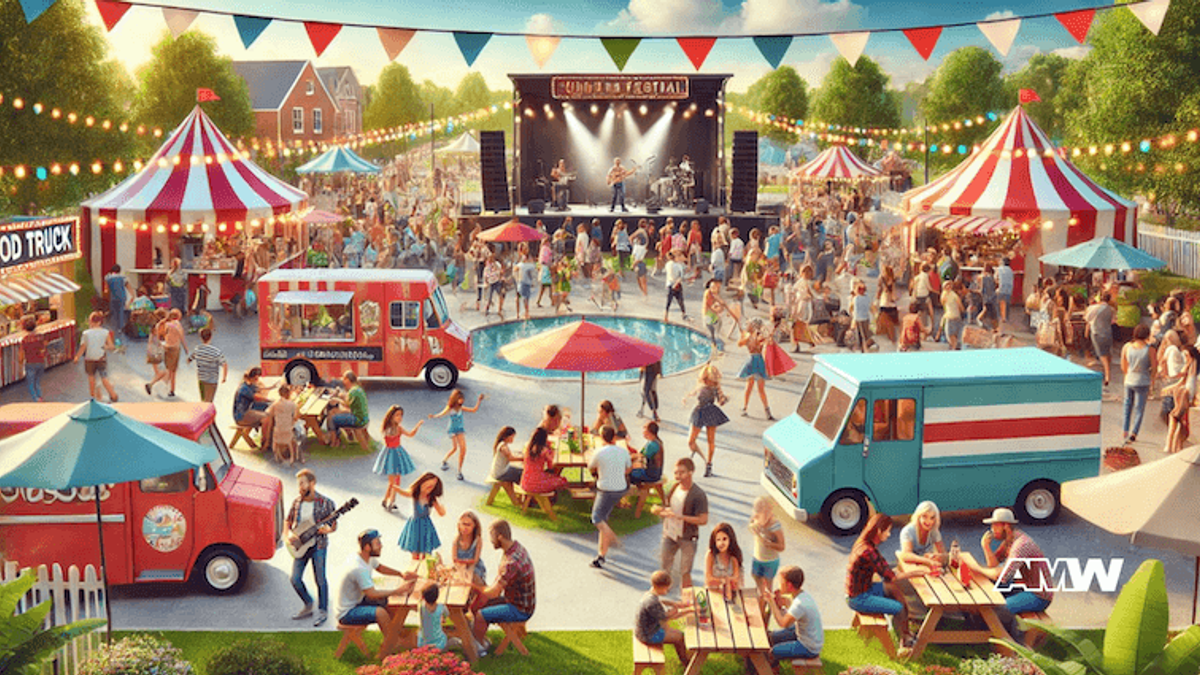
Thorough event promotion is essential for ensuring the success of any event, whether it's a small local gathering, a large corporate conference, or a virtual event. Effective event promotion strategies involve a blend of digital and traditional marketing efforts, clear and compelling messaging, and continuous engagement with your target audience. By understanding your audience, leveraging multiple marketing channels, and keeping a strong brand identity, you can successfully promote your event and ensure it reaches its full potential, creating memorable experiences for all event attendees and setting the stage for future events.
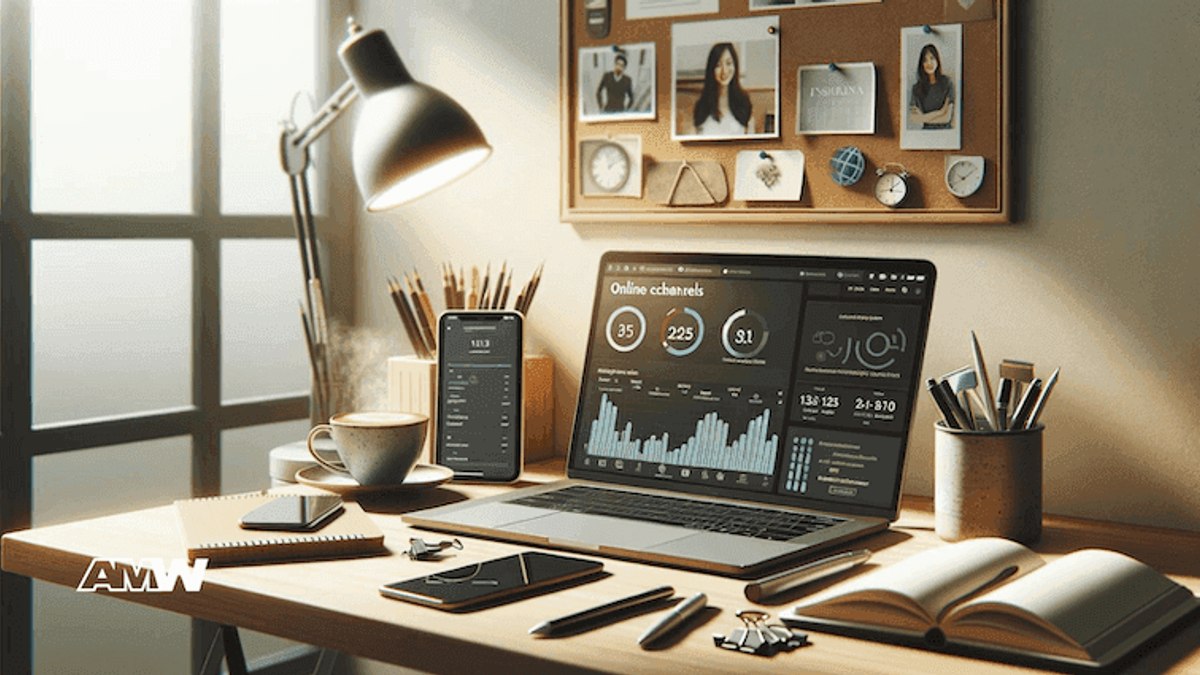
Written by Maria Kanic
Maria Kanic is a Social Media Manager at AMW with expertise in digital campaigns, social media strategy, and brand communications.
Ready to Grow Your Business?
Get a custom strategy tailored to your goals.
Frequently Asked Questions
How far in advance should you start promoting an event?
Start promoting your event 6-12 weeks in advance for maximum impact. Begin with pre-promotion 8-10 weeks early to generate initial buzz, followed by active promotion 4-6 weeks before the event. For larger events or conferences, extend this timeline to 3-4 months. This allows time for early bird registration, speaker announcements, and building momentum through multiple marketing channels while giving potential attendees adequate time to plan and register.
What are the most effective marketing channels for event promotion?
The most effective channels include social media platforms (Facebook, LinkedIn, Instagram), email marketing campaigns, and your event website. Social media ads offer targeted reach, while email marketing provides direct communication with past attendees and subscribers. Influencer collaborations, press releases, and content marketing also drive significant engagement. Choose channels based on your target audience demographics - LinkedIn for professional events, Instagram for lifestyle events, and Facebook for community gatherings.
How do you measure the success of event promotion campaigns?
Track key metrics including registration numbers, ticket sales, website traffic, social media engagement rates, email open and click-through rates, and cost per acquisition. Use Google Analytics to monitor event page visits and conversion rates. Set specific, measurable goals like target attendance numbers or social media reach. Monitor these metrics throughout your promotion timeline to identify which channels perform best and adjust strategies accordingly for maximum ROI.
What should be included in an event promotion timeline checklist?
Include pre-promotion activities (8-10 weeks early): event website launch, early announcements, and speaker confirmations. Active promotion (4-6 weeks): social media campaigns, email marketing, influencer outreach, and paid advertising. Final push (1-2 weeks): last-minute ticket offers, reminder emails, social media contests, and urgency-driven messaging. Schedule specific deadlines for content creation, graphic design, press releases, and promotional material distribution across all marketing channels.
How can you create compelling calls-to-action for event registration?
Use action-oriented, urgent language like 'Register Now,' 'Secure Your Spot Today,' or 'Join [Number] Attendees Already Registered.' Create urgency with limited-time offers, early bird pricing deadlines, or limited seating announcements. Place CTAs strategically on your event website, social media posts, email campaigns, and promotional materials. Make buttons visually prominent with contrasting colors and ensure the registration process is simple and mobile-friendly to maximize conversions.
What are the key elements of effective event messaging?
Focus on your unique value proposition - what makes your event special, whether it's exclusive speakers, networking opportunities, or cutting-edge content. Clearly communicate benefits attendees will receive, address their pain points or interests, and use compelling headlines that grab attention. Maintain consistent branding across all materials, include social proof like past attendee testimonials, and tailor messaging to specific audience segments for maximum relevance and engagement.
How do you identify and target the right audience for your event?
Research your target demographics including age, location, occupation, interests, and industry. Analyze past event attendees and create detailed buyer personas. Use social media insights, survey data, and competitor analysis to understand audience preferences. Segment your audience into groups (past attendees, new prospects, industry professionals) and create personalized messaging for each segment. Utilize targeted social media advertising and email list segmentation to reach the most relevant potential attendees effectively.
Related Resources
Calculators
Pricing Guides
Key Terms
Optimization of individual web page elements including content, HTML source code, and meta tags to rank higher in search results.
Keyword DifficultyA metric estimating how hard it would be to rank on the first page of search results for a specific keyword.
Content DecayThe gradual decline in organic traffic and rankings that content experiences over time as it becomes outdated or outranked.
Brand SalienceThe degree to which your brand comes to mind quickly and easily when customers think about your product category.
Answer Engine OptimizationOptimizing content for AI answer engines and conversational search interfaces.
Related Articles

How to Advertise an Event: Top Tips
Effective event advertising is crucial for ensuring your event's success. Whether you're organizing a corporate conference, a product launch, or a community fundraiser, the right promotion strategies

Effective Event Media Coverage Strategies
Adequate media coverage can significantly enhance an event's visibility and success, transforming it from a simple gathering into a widely recognized and impactful occasion. Whether it's a corporate c

Event for Marketing: Crafting an Effective Strategy
Planning an event for marketing purposes can be a good tool to connect with your audience, create memorable experiences, and promote your brand. Whether organizing in-person events, virtual events